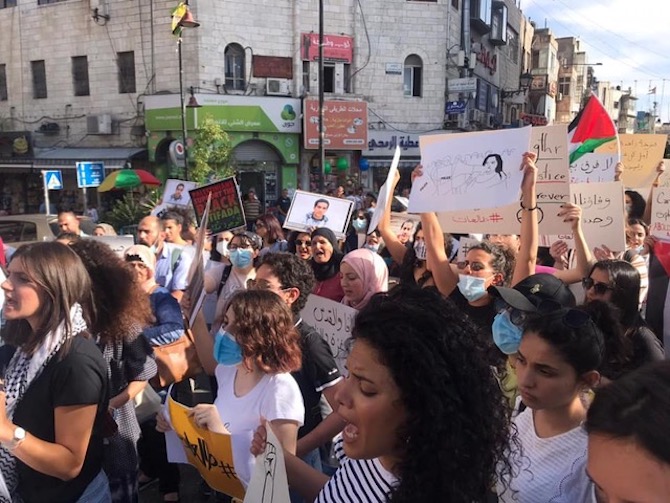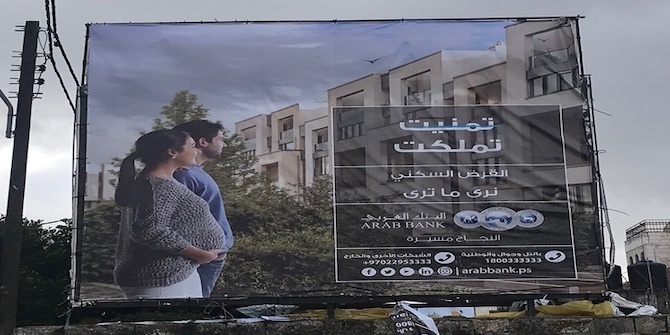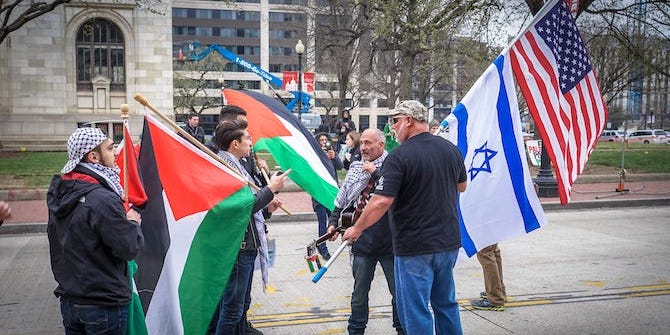by Walaa Alqaisiya

In May 2021, the world’s attention was drawn to Palestine and its struggle with Zionist settler colonialism. The plight of the small Jerusalemite neighbourhood of Sheikh Jarrah and the persistence of its people – refusing to be removed from their homes and making their voices heard across the entire world – has instigated a wider Palestinian movement mobilising varied forms of popular dissent and resistance, extending across the whole of Palestine from the river to the sea. The May uprising and subsequent political events it triggered offer a window to understand Palestinian queer feminist work and its legacy, revealing its indivisibility from the structural continuity of Palestine’s ongoing Nakba. Groups such as alQaws for Sexual and Gender Diversity in Palestinian Society and the recent Tala’at movement argue that analyses of gender and sexuality should not be separated from structures of capitalism, colonialism and patriarchy. Sex/gender analysis is a lens through which to understand and unveil processes of settler-colonial conquest in Palestine. That is, the Palestinian Nakba is not just a moment in 1948 when Israel’s establishment on the back of indigenous displacement took place, but is also a structure premised on gendering and sexualising processes that capture the material continuity of the new colonial society on the expropriated land base.
Whilst imagery of gender and sexual penetration lies at the heart of Zionist halutz (‘pioneer’) desiring and extraction of value from the conquered land, moments of heightened military confrontation with indigenes’ presence manifest the continuity of such violence, further unveiling the hetero-masculinist premise of settler-conquest. The 2014 photos and narratives from Zionist official and media circles which called for targeting and/or raping women’s bodies through military aggression resonate with this year’s tweets of a now deceased Israeli soldier boasting about raping Palestinian women. At the same time, the Nakba entails processes of containing the indigenous Other, regulating their lives and bodies within the institutionalised social-political and economic parameters of the settler state. This includes the regulation of genders and sexualities within the frameworks of recognition and geopolitical boundaries that the settler state dictates and controls.
The Palestinian queer body has been at the heart of such regulation through pinkwashing policies’ production of a victimised queer Other whose only path to survival and recognition is the coloniser’s space, depicted as the only LGBT feminist outpost in the region. During this latest round of aggression on Gaza and Sheikh Jarrah, the Eurovision song contest was taking place, with Israel’s entry a song titled ‘Set Me Free’, performed by a Jewish Ethiopian woman. Palestinian queer feminist work and analysis brings attention to the gendered and sexual aspects of Israel’s settler mobility on global scales. The emergence of Tel Aviv as a global LGBT city is built upon defeating and erasing the Palestinian queer feminist voice and her political appeals for resistance. Palestinian women and queer activists expose the imperialist and colonial premise of the model of gay and feminist internationalism that Eurovision represents. Statements such as ‘try to organise pride parades in Gaza’ are used to both justify the genocidal policies of the settler state and to delegitimise the indigenous anti-colonial uprising.
Queer feminism in Palestine centres indigeneity’s plight as a struggle for land, which is not just about its retrieval, but simultaneously entwines the struggle to exist beyond the distortion and alienation of the coloniser’s reality. The movement’s grassroots work has been at the forefront of challenging Palestinian internal fragmentation by systematically organising themselves within a decolonial cartography of Palestine. Their calls for unity and action across the totality of Palestine not only challenge the Zionist divide-and-rule policy, but also confront local comprador-elites’ adoption of neo-colonial frameworks, re-inscribing the very geo-colonial divisions of Palestine and Palestinians (i.e., the West Bank, ‘48 Palestine, East Jerusalemite etc.). The Palestinian masses who have taken to the streets of Jerusalem, Haifa, Gaza, Hebron, Lydd and so on hold the same messages of unity, dignity and hope that the queer feminist movement has been relentlessly upholding across the totality of Palestine. In July 2020, almost a full year before the start of the May uprising, Palestinian feminists and queers took to the streets to chant for freedom, liberation and an end to violence against communities. Entitled ‘A Rallying Cry for Queer Liberation,’ it was led and organised by Palestine’s queer collectives: alQaws, Aswat and the Palestinian feminist grassroots collective, Tal’at who joined in the call to ‘raise our voices against the patriarchal, colonial and capitalist oppressions on our bodies and lives.’
Moving from pain to hope – ‘min al alam ila al amal’ – is one of the core messages at the heart of a Palestinian queer feminist praxis aiming to imagine a decolonial future through a radical approach to political mobilisation. The May uprising built on the accumulative work of grassroots feminist queer confrontation with the Oslo ‘liberal peace’ structure, which maintains and normalises the Zionist colonial governmentality regime through things like the ‘internationally backed’ gender mainstreaming programmes within the PNA security regime. It was hardly surprising, therefore, to see PNA security forces’ targeted beating and sexual assault of female protestors in the aftermath of the PNA killing of a Palestinian opponent from the south of Hebron. Palestinian queer and feminist activists continue to be the at the forefront of taking action and providing analysis around what liberation and decolonisation entails. They warn against how the Authority defiles protestors’ ‘honour’ by virtue of mobilising sex panics against those seen as immoral and sexually promiscuous. Such practice becomes instrumental for maintaining socio-political control within the structure that sustains the ongoing Nakba.
The persistence of organising, marching and building upon the revolutionary opening that the May uprising has enabled manifests the value of Palestinian queer feminist work in planting hope and the spirit of mukawamah – defiance – in moments of despair, fear and hopelessness. Palestinian women and queers’ unapologetic reclamation of public and digital spheres reflect the power of a movement whose work towards indigenes’ radical self-determination captures the indivisibility of a Palestinian decolonial futurity from its queer feminist roots.






